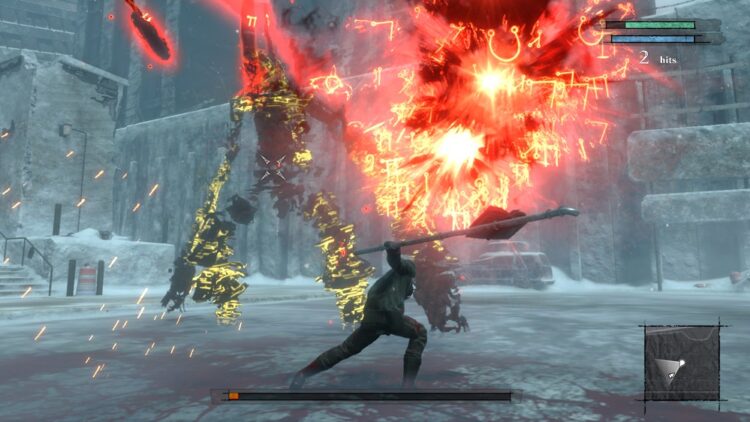It’s probably safe to say that most people’s exposure to the NieR series is through the Automata sequel. The original NieR, known either as Gestalt or Replicant, was generally not spoken of frequently until Automata came about. But since Square Enix decided to merge the two and remaster it, the prequel has finally gotten some of the attention that fans would’ve wanted the originals to have.
Though in typical Yoko Taro style, it had to have a complicated name: NieR Replicant ver.1.22474487139… Yes, even the ellipsis is officially part of the name. But for brevity, I’ll just refer to the remaster as just NieR Replicant from now on.
Despite the title of this review, I’ll admit that I never played the original. In fact, I’m basically one of the general gaming public, who only heard of NieR Replicant following the success of Automata. But now that I’ve played the remaster, I can say that I’m glad that it’s a positive addition into my life.
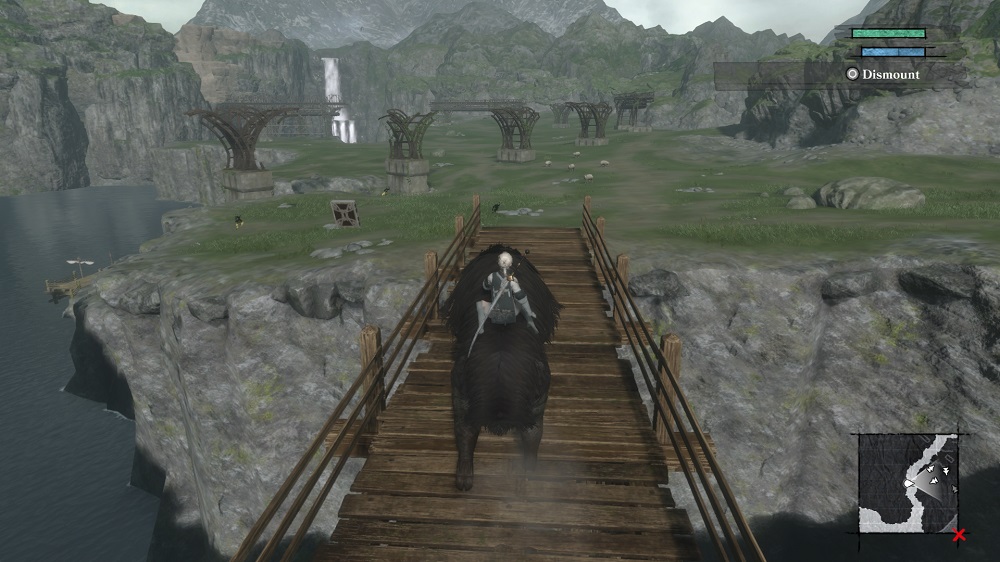
Among the video game reviews I’ve written, this is one of those that really got me thinking, “where do I even begin?” as I put my hands on the keyboard. So I decided this time to look at the cult classic’s initial performance and critical reception. Overall, it looks like the game was panned generally for its graphics. Every other aspect seems to range from mixed to good, but none actually great.
Some elements really show their age
As for the remaster, I would say that, save for the graphics criticism, it’s mostly the same story. Oh, but with one more exception, which is the music. But I’ll get to that later.
Being the original and an older game, there are many elements that the NieR Replicant remaster is constrained by. While it makes the most of it in most areas, the older formula does show its age. One example of this is the small number of playable areas. And most quests, be they main or side types, will see you running back and forth between them.
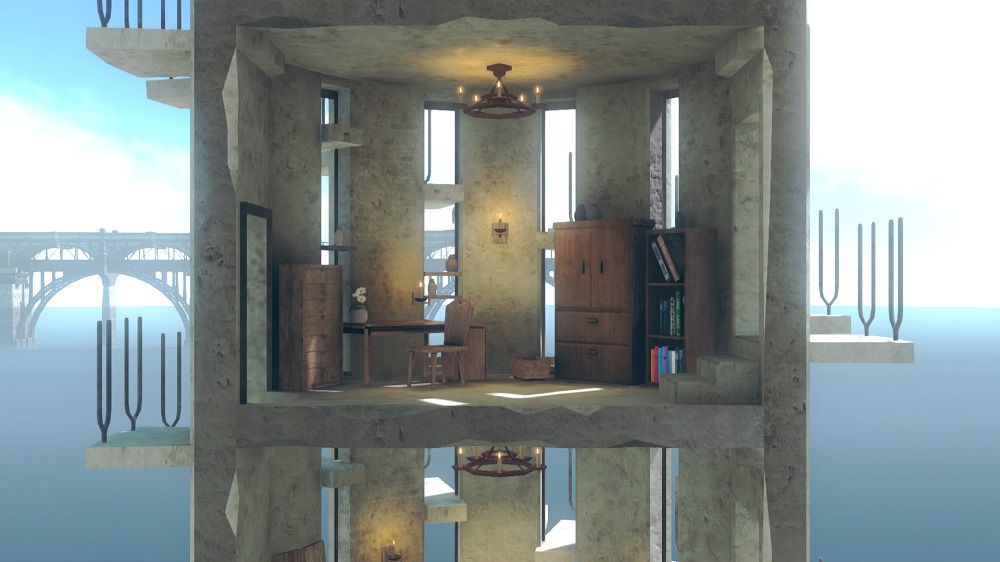
The sidequests were among the things that were criticised before, and it’s easy to see why. While many give rewards in forms of money, exposition or world building, equally many are mundane with nothing waiting for you at the end. Considering that there are many that need you to go between multiple areas, and thus multiple loading screens, this can get tiring quite quickly.
Despite coming out in 2021, the graphics quality are unmistakably of the previous generation. It’s not terrible, but it isn’t enough to not look boring after you’ve been through the same area dozens of times. Character models do look better than objects and the world in general, but you don’t really get to see this often. At least, not much outside of cutscenes, of which they are also quite few.
Transcendental soundtrack
Fortunately, filling in the otherwise painfully obvious gaps in fun is the magnificent music. Easily the strongest point of the game, to say that each track is beautiful would truly be an understatement. Where in most games you expect the BGM to merely match the setting, the tracks in NieR Replicant are storytellers in their own right. Each tells its own compelling tale of the environment you’re in, as if reliving past glories. And this is especially true for tracks with vocals of the game world’s made up language.
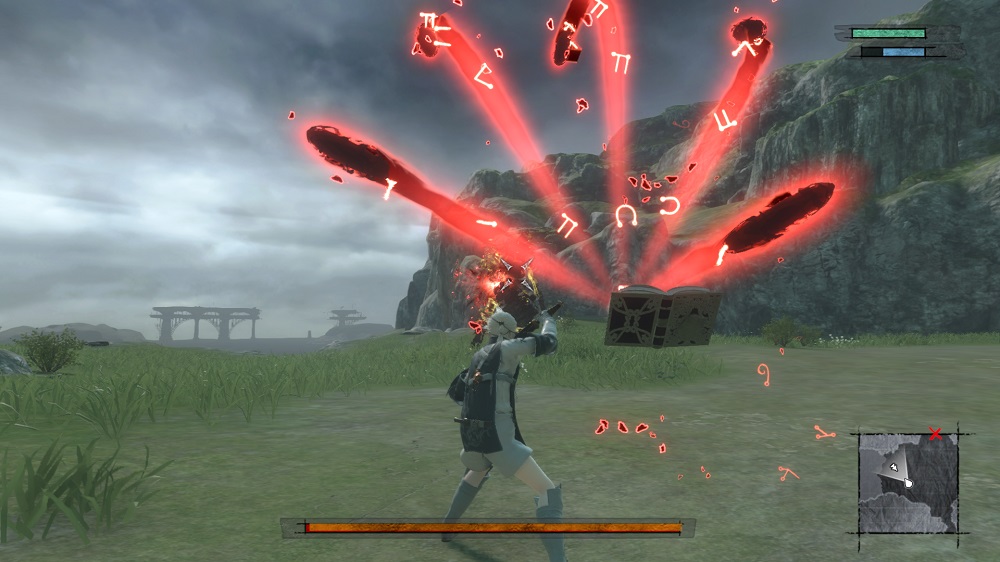
While this sounds like hyperbole, it is really difficult to overstate the quality of the soundtrack. As mentioned earlier, the environmental graphics is nowhere as good. But there’s something about putting the two together that really brings out that X factor of enjoyment. Therefore making them better than the sum of its parts, if you will. Though its limited number of map areas would mean that its OST tracklist is pretty short by modern video game standards.
For those who played the original, the score is rearranged for the remaster, so it will sound immediately familiar. But having gone to listen to some of the older tracks, it sounds like the two generations of soundtracks tell an ever so slightly different story.
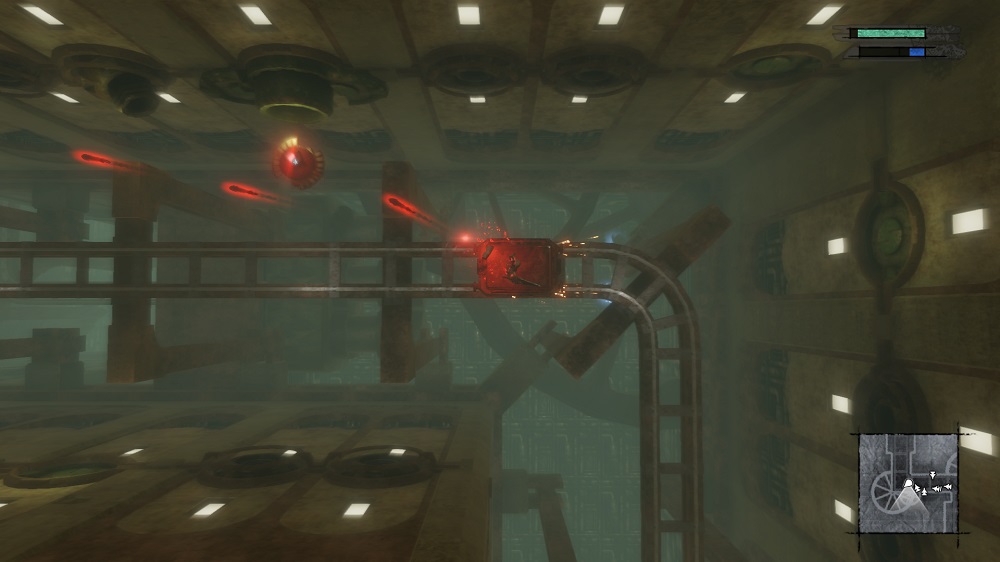
Gameplay of the NieR Replicant remaster is definitely diverse. For the most part you’ll be running between maps for the myriad of quests. Second most would be combat, and it is quite enjoyable. To some extent, one can see the influence of the chronological sequel, Automata, in this game’s combat.
There’s not much in terms of depth, but there’s a functional action RPG system. This lets you not only upgrade your weapons, but also add modifiers to them and your magic. These modifiers range from increased damage to increased exp or drop rate, better MP regen, or add effects like poison.
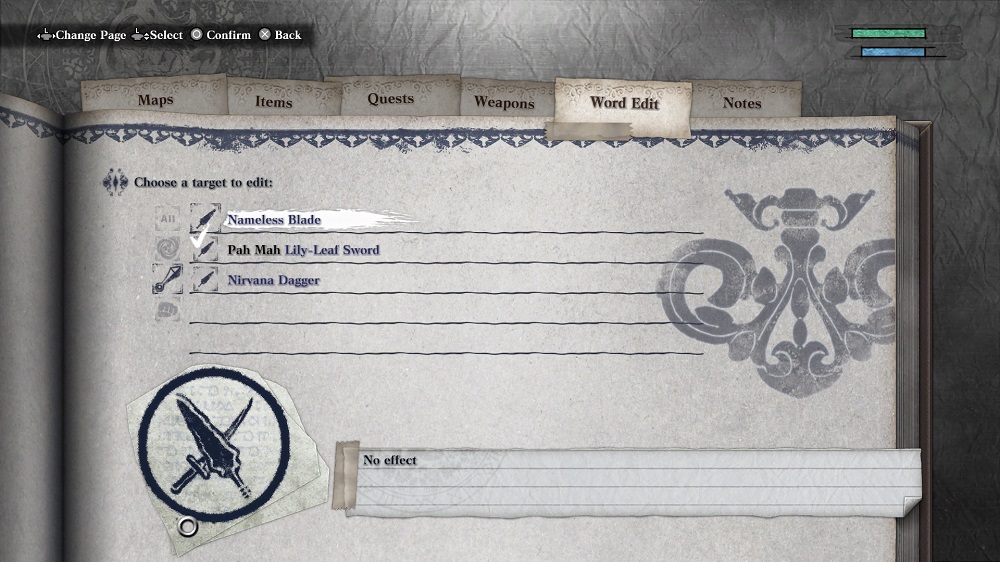
Then there are sub-gameplay mechanics such as puzzles and platforming, which are strewn about here and there. Unique ones include an area that features exclusively text-based gameplay ala a Choose Your Own Adventure title, while another instance is a straight up (but bite-sized) horror experience.
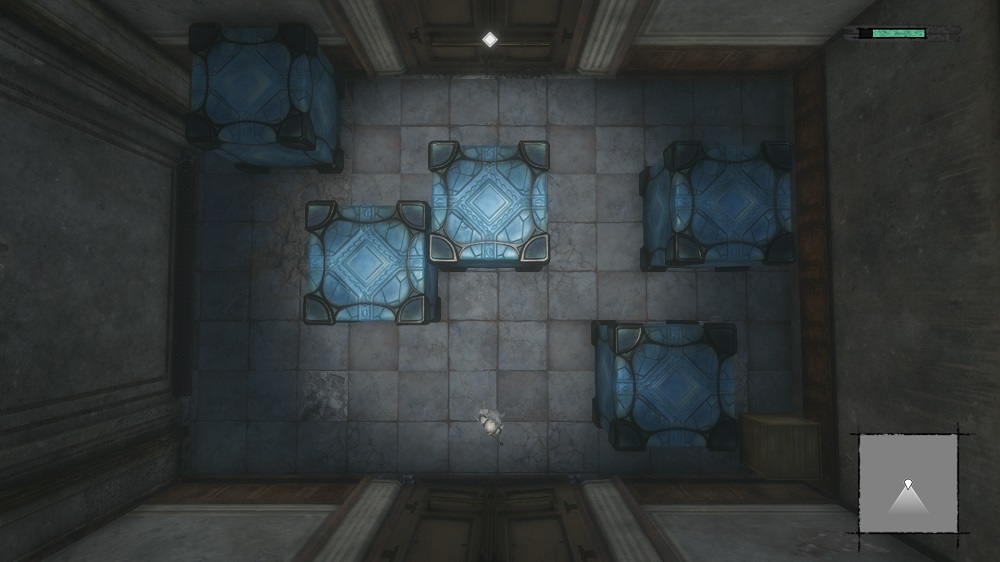
Overall, the additional gameplay make for an interesting twist, but they don’t necessarily gel well together. The text and horror ones are especially out of place. Not only do they come out of the blue, their respective plot doesn’t exactly justify them either.
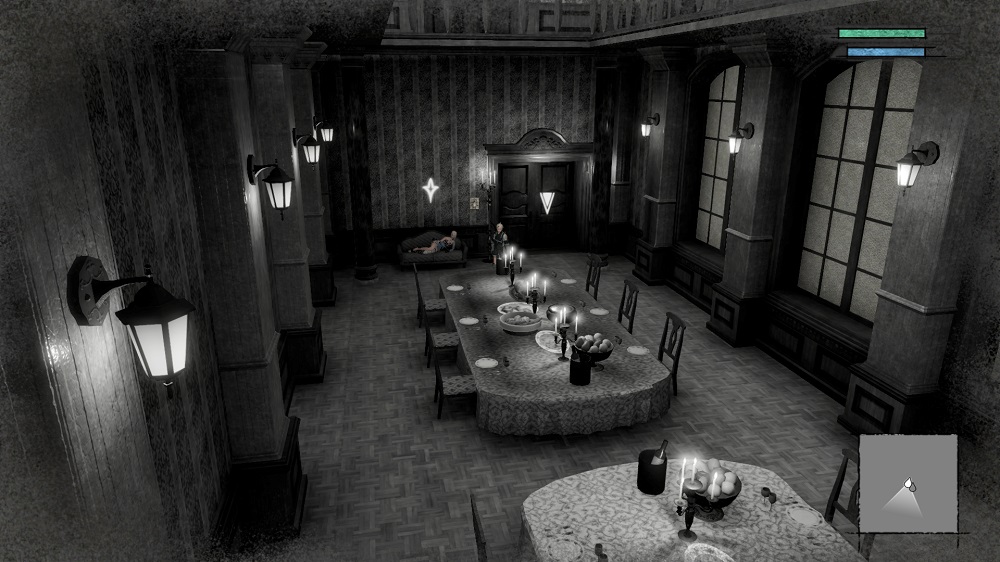
Finally, there’s the plague of many Square Enix games: localisation. Like those that came before, the NieR Replicant remaster suffers from over-localisation. But more so than before, you get a clear image of what the English team were going for, and why exactly they fell flat.
Overall, the English subs were a lot more flavourful, and probably sound less repetitive as a result. But because of that, it really detracts from the sombre tone of the story and dialogue. The English lines also end up mischaracterising some of the, well, characters. For example, Yonah is mostly a sweet and innocent young girl. But her English lines make her sound like a needy and dismissive brat sometimes.
Then there are other silly changes for the sake of changing things. One example that comes to mind is a sidequest that involves a dog. It’s called Jon or John in the Japanese lines, but translated as Max instead. Again, contextually, it makes sense, but it doesn’t make the change any less unnecessary.
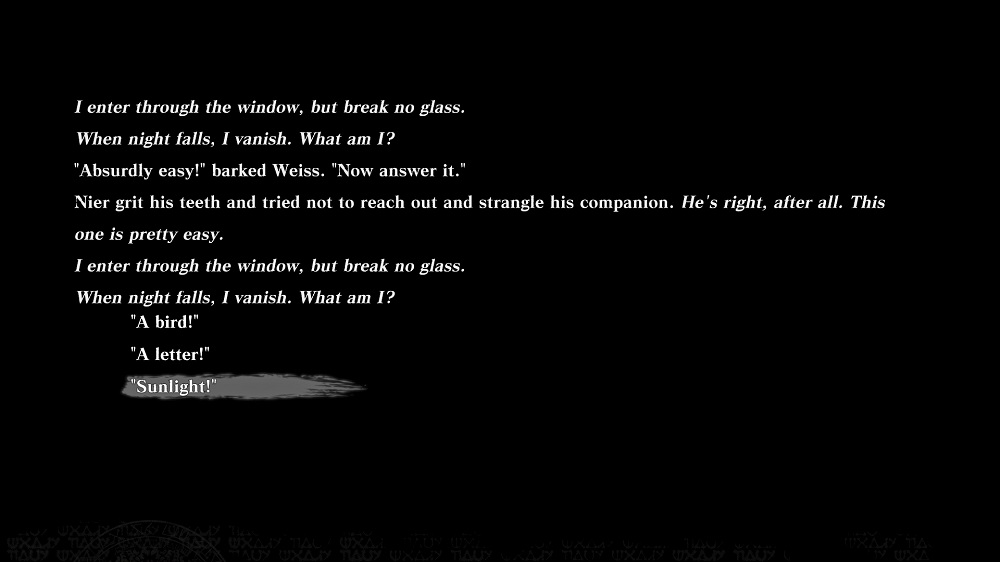
At the end of this wall of text, I would conclude that it’s not easy to describe a game such as NieR Replicant. It’s definitely showing its age in some of its parts, but in a time where more and more games are just more of the same, NieR makes for quite the change of pace. There’s definitely a reason as to why this was such a cult classic back in the day.
If you’re into video game music, this is definitely one game to pick up. The NieR series has always had very powerful music, thanks in no small part to its made up language. And it’s much the same story with this NieR Replicant remaster in that regard. While they are smaller in number compared to other video games of today, the soundtrack really does make up for it in quality where it lacks in quantity.
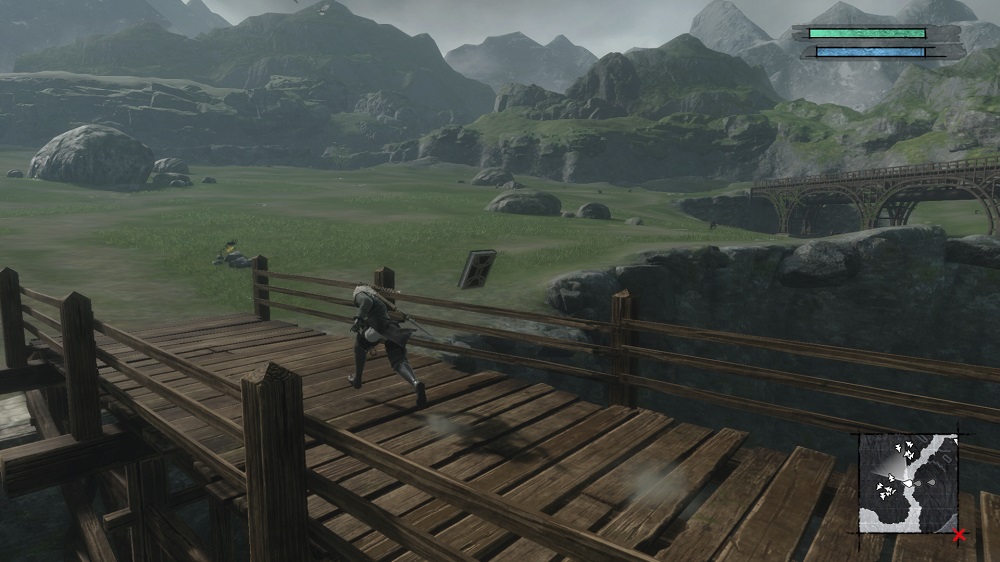
Overall, there are two main reasons why you would pick up the NieR Replicant remake. One is to see what the cult classic is all about. The other, and by far the better reason, is to not miss out on the game’s glorious, transcendental soundtrack.

